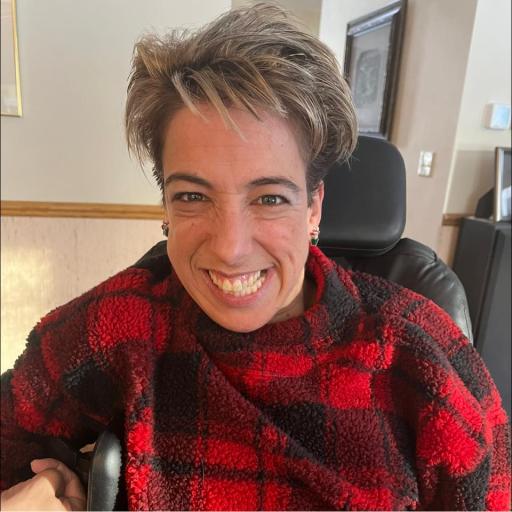
Stacy's Journal: Disability Pride
A child winning a trophy. A person accomplishing something amazing. Someone conquering a fear. An individual achieving a longtime goal. What do these things have in common? The feeling of pride. According to Google, the definition of pride is “a feeling of deep pleasure or satisfaction derived from one’s own achievements, the achievements of those whom one is closely associated; or from qualities or possessions that are widely admired.” In the last quarter century, the concept of pride has taken on another whole meaning. Many minority groups have leveraged the idea of pride into their culture. Minorities have begun dedicating specific months to celebrating their culture. February is African American month. June is gay pride month. Disability pride month is July.
“I struggle with the concept of disability pride,” I told my mom as we were driving to the Self-Determination YouTube Channel retreat in Madison a few weeks ago. We were talking about the Madison Disability Pride Fest that was happening the next day. For multiple reasons, we weren’t able to attend this year, but my mom and I got on the topic of disability pride. In late July, I was on a panel that presented for the Leading Learning Agency Webinar Series. There were 350 people listening and the topic was disability rights. Most of the questions were about disability pride. I was telling mom how some people probably didn’t like my answers because I have a very different opinion about the whole idea of disability pride than many people do.
In my personal opinion, the word pride means proud. When you have pride in something, you feel proud of whatever it is. Am I proud of the fact that I have a significant disability? Unlike many people, I can’t bring myself to say I am. In fact, I can firmly say that I am not. I really admire anyone who can say that they’re proud of having a disability –what a strong individual you must be! The whole idea of disability pride is very similar to the disability awareness months. In a previous entry, I discussed my views on those. I’m not a fan of focusing solely on one’s limitations. Personally, the last thing I want is attention drawn to my disability.
Having said all that, I’m all for celebrating how far people with disabilities have come. Or, I should say how far society has come in including people who have disabilities. The concept of disability pride was started to celebrate the passing of the Americans with Disabilities Act and the rights and protections it gives to people. The 33rd anniversary of the ADA was at the end of July. I think Disability Pride month is twofold. Obviously, it’s important to acknowledge and celebrate all that has been able to be accomplished thanks to the ADA. It’s great to recognize all the things that people with disabilities are able to do because of the ADA. I also feel that the concept of Disability pride acknowledges the fact that people with disabilities still don’t have the same opportunities as their non disabled counterparts. Simply put, it serves as a reminder that we, as disability advocates, have more work to do.
Being a self-advocate and also working in disability advocacy, I find myself always trying to find a balance. I’m not proud of having a disability, but I’m proud of what I’ve been able to accomplish despite having some extra barriers to overcome. In my opinion, advocating for what you need and sharing your experiences isn’t necessarily prideful. I believe advocacy is about educating others. Am I proud of the fact that I’m helping others learn what it’s like living with a disability? Absolutely; however, that doesn’t mean I am proud of having a disability. I also feel there’s a difference between accepting your disability and having pride in having a disability. I acknowledge and accept that I have a disability—it’s a part of my life. However, I don’t take pride in it.
I also feel like the people first language debate comes into play here as well. In a previous entry, I talked about how even though there continues to be a move away from the people first language, I still prefer to use it. Maybe I’m just too self-conscious, but I hope that people view me as the person I am first. Sure, obviously especially with physical disabilities, people are going to associate me as having a disability, but I hope they see the person I am first.
Over the years, it seems like more and more people have pride in being disabled. Maybe it’s because society is embracing the concept of disability more. Maybe it’s because people with disabilities feel like they are more united. While I personally can’t say that I have pride in having a disability, I have the utmost respect for those who do. Probably not our lifetime, but, someday, there won’t be any pride needed because society will be so inclusive that differences won’t matter!
***The views expressed here are strictly those of the author and do not necessarily reflect those of InControl Wisconsin, the Network or any of our sponsors.
